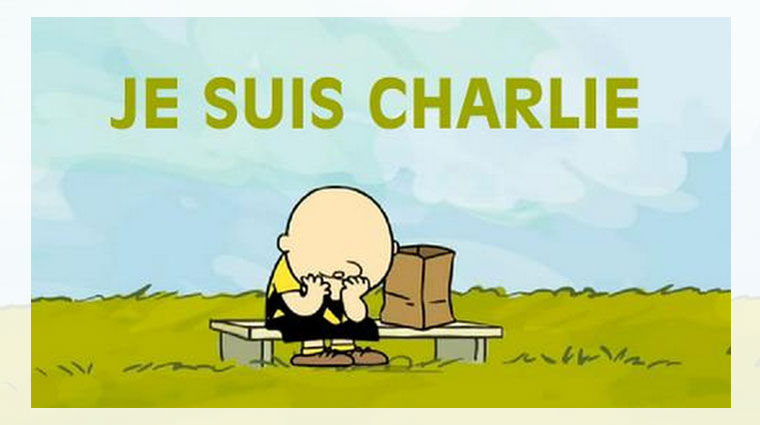There are a few things that can be said about The Straits Times editorial piece published on Jan. 9, 2014, one day after the Charlie Hebdo killings:
1. Singapore's national newspaper does not have a stand.
Compare ST's editorial with the editorial of other newspapers overseas:
Financial Times: A murderous attack on freedom of expression - "The right of Charlie Hebdo to lampoon religion should not be in doubt".
The International New York Times: The Charlie Hebdo Massacre in Paris - "This attack was an assault on freedom everywhere".
The Economist: Terror in Paris - "Islamists are assailing freedom of speech; but vilifying all Islam is the wrong way to counter bloody medievalism".
South China Morning Post: Not even the rudest insults can justify terror attack on French magazine Charlie Hebdo
In times of calamity, especially at a time like this when a blatant assault on the media and fellow journalists has occurred, ST clearly does not take any stand.
ST applauded the French response in solidarity with the victims. It also praised the Islamic leaders in France for condemning the killings - but what is its own view?
This sort of spineless approach to writing is infuriating because they can say what they are for, even if it is to advocate for the need for responsible speech in a multiracial society.
This means that even if ST does not want to take the side of absolute freedom of speech, they should state what they disagree with.
The conspicuous absence of taking a principled stand is glaring.
2. It makes too many assumptions.
This is what ST wrote, which is highly debatable:
"Those who attacked Charlie Hebdo were motivated by a different conception of the world, one in which religious beliefs possess an autonomy that cannot be negotiated away and one where the line separating the sacred and the profane must be enforced strictly. Here, the magazine's intrusions into Islamic religiosity, particularly in areas surrounding the inviolate person of Prophet Muhammad raised uncomfortable questions."
Bearing in mind that ST's editorial was written at a time before the full facts of the killing are known, this means the motive of the killers have not even been established as the perpetrators are still at large.
So, why make the assumption that this is religiously motivated?
3. Because ST's mistake is in thinking that the descriptive is explanatory.
ST made reference to a pattern by suggesting past attacks had something to do with the latest assault. This led to the automatic assumption that this was about taking offense at satire.
And then it concluded that the spontaneous French response to the attack showed that those who believe in liberty and fraternity will not be easily cowed and that "extremist violence" must never be allowed to win.
ST is of the opinion that the attacks highlighted the vulnerability of everyday institutions to the extremist sentiments of society.
It subsequently opined that this "terrorist attack" is "a clash of civilisations", where the taking of lives is incidental to a larger war.
But is there an alternative narrative? Of course there is.
Here is a deeper reading and an alternative explanation as presented in The Telegraph:
The attacks were meant to provoke a backlash against the moderate Muslim community. The perpetrators of the killing weren't even upset about the satire or cartoons that lampooned Islam in the first place. Rather, everyone just bought into the narrative that they did. What they did do is that they picked a controversial target, a magazine, that represented a pillar of the French way of life and they were trying to stoke the flames of unrest. Because when push comes to shove, disenfranchised Muslims who are marginalised or ostracised will really finally take up arms and this will lead to civil unrest.
If ST's responsibility is to its readers, and if they cannot take a principled stand, they should do more to look at the competing narratives and not simply echo what is already widespread.
But it can be hard to be original when it means not sticking to the majority viewpoint.
Because right now it is assumed in everybody's mind that the killings has something to do with religion and it was motivated by perpetrators who took offense at satire.
All the editorial did was re-state what is already assumed, which calcified the belief that somehow Muslims and religion are to blame.
Which might not really have been the exact case at all.
Top photo via Magnus Shaw Twitter
If you like what you read, follow us on Facebook and Twitter to get the latest updates.
If you like what you read, follow us on Facebook, Instagram, Twitter and Telegram to get the latest updates.


